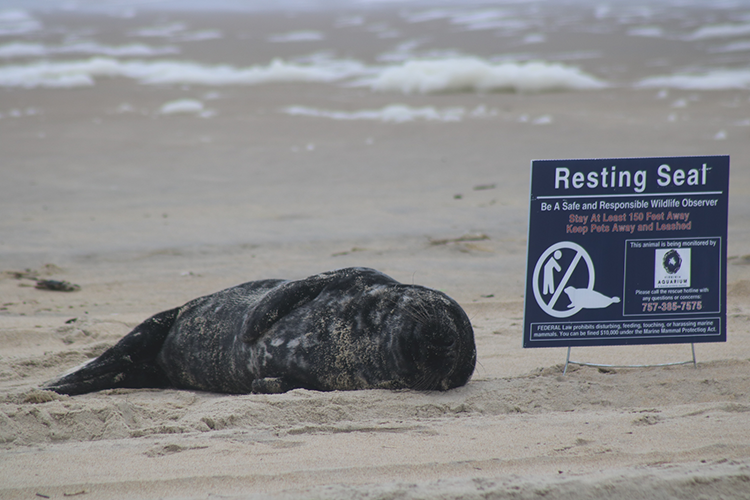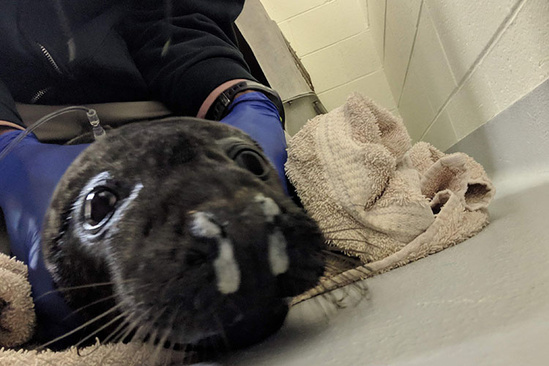NC State Veterinary Hospital Helps Lost Seal Pup Find His Way

The young gray seal needed to go North, and the NC State Veterinary Hospital was a vital stop on the way there.
The seal’s path to NC State began in late February. As reported by the National Oceanic and Atmospheric Administration, the seal was spotted in Virginia Beach, Va., and reported as lethargic and in questionable health. He was treated and released, but in mid-March was seen in Myrtle Beach, S.C. A few days later, he was in Hilton Head, S.C.
Gray seals usually live in the Western Atlantic, from Canada to the Northeast United States. Lost seals usually find their way back to their typical habitat without intervention. When he was eventually seen as far south as Florida, marine mammal responders knew the seal needed help.

“We were hoping it would turn north on its own,” said Ainsley Smith, NOAA Fisheries Greater Atlantic Region’s acting marine mammal stranding coordinator, in a press release. “When the seal was seen in St. Augustine, Fla., it became clear that this seal was lost and needed help.
So the rescue began. NOAA teamed up with other organizations to capture the seal and transport him to SeaWorld in Orlando, Fla., for medical treatment on March 21. The next day, he was transported to the NC State Veterinary Hospital for additional fluid therapy administered by the exotics service team and an overnight stay.
The following day, the pup arrived at the National Aquarium in Baltimore, where he is now recovering, undergoing full diagnostics and treatment at the aquarium’s care and rescue center.

He is underweight, but does not have serious injuries and illnesses, NOAA says. He has even started eating fish on his own. He now has a name: Edwin Hubble, following the National Aquarium’s practice of naming rescued animals after scientists.
“The journey of this seal truly speaks to the importance and power of collaboration among the stranding network and the animal rescue organizations up and down the East Coast,” said Kate Shaffer, the National Aquarium’s rehabilitation manager, in a statement.
Gray seals are protected under the Marine Mammal Protection Act. If you see a seal on the beach, give it space — it’s normal seal behavior. To report a stranded marine mammal or one that seems to be in danger, NOAA advises calling 877-whale-help (877-942-5343) in the Southeast and Gulf of Mexico or 866-755-6622 from Maine through Virginia.
- Categories:


